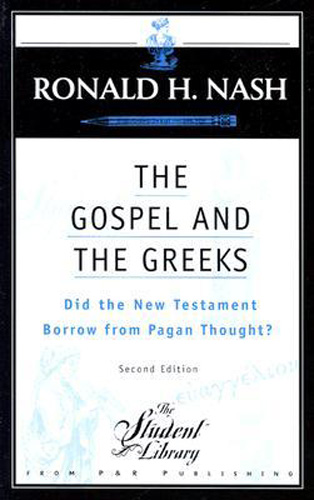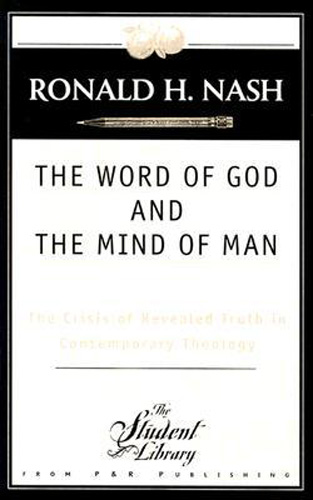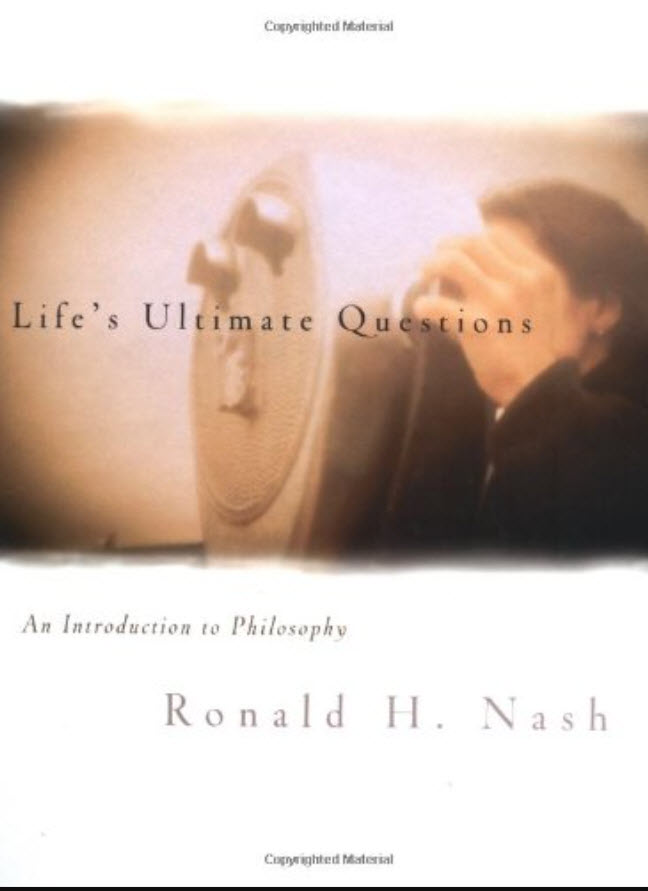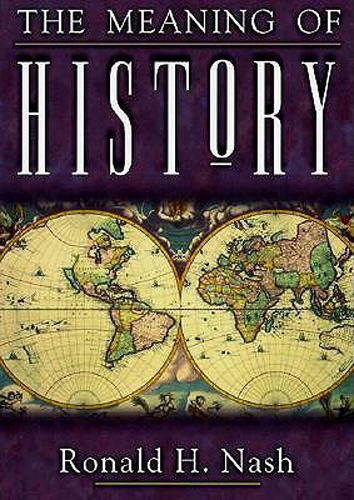History of Philosophy and Christian Thought - Lesson 28
Evil
Augustine writes about the problem of evil and describes evil as the absence of good.

Evil
Augustinian Philosophy
Part 4
IV. The Problem of Evil
A. Refutation of Dualism (C.S. Lewis)
1. How do you know which god is the good god?
2. There must be a higher standard by which we judge.
3. The higher standard must be good, because all evil is a corruption of some higher good.
4. You cannot have two gods; God must be the only standard.
B. Evil is the absence of good.
C. "The Free Will Defense"
Introduction
0% Complete- 0% Complete
Thales and Anaximander were two philosophers in the sixth century BC that lived in Miletus.
0% Complete - 0% Complete
Heraclitus and Pythagoras lived into the 5th century BC.
0% Complete - 0% Complete
Any worldview addresses the subjects of God, ultimate reality, human knowledge, ethics and human persons.
0% Complete - 0% Complete
Fundamental beliefs of a naturalistic worldview is that nothing exists outside the physical universe and that all things evolved.
0% Complete - 0% Complete
Plato was a student of Socrates and lived into the fourth century BC. He opposed hedonism, empiricism, relativism, materialism, atheism and naturalism.
0% Complete - 0% Complete
Plato described the universe as having three levels: the world of particulars, the world of forms, and the form of the good.
0% Complete - 0% Complete
Plato's view of the universe was dualistic.
0% Complete - 0% Complete
One of Plato's fundamental arguments is that the human soul is immortal.
0% Complete - 0% Complete
Evaluation of Plato's arguments and comparison of Plato's philosophy with biblical theology.
0% Complete - 0% Complete
Empiricism teaches that all human knowledge arises from sense experience. Rationalism teaches that some human knowledge does not arise from sense. experience
0% Complete - 0% Complete
Aristotle was a student of Plato and lived in the fourth century BC.
0% Complete - 0% Complete
Aristotle rejected Plato's doctrine of two worlds.
0% Complete - 0% Complete
Discussion of Aristotelian philosophy as it relates to the incarnation.
0% Complete - 0% Complete
Aristotle's philosophy as it relates to attributes of God and fundamental assumptions about psychology.
0% Complete - 0% Complete
Aristotle made a distinction between passive intellect and active intellect.
0% Complete - 0% Complete
Discussion of the strengths and weaknesses of the law of non-contradiction.
0% Complete - 0% Complete
Discussion of the nature and substance of matter.
0% Complete - 0% Complete
Hellenistic philosophy was an approach that was popular from the fourth century BC to the fifth century AD.
0% Complete - 0% Complete
Stoics were determinists who believed in living according to nature.
0% Complete - 0% Complete
Hedonism emphasized pleasure as the greatest good. "Eat, drink and be merry for tomorrow we might be dead."
0% Complete - 0% Complete
Philo's philosophy was based on a synthesis of Stoicism and Platonism.
0% Complete - 0% Complete
Implicit "Logos" Christianity is an underlying theme in the book of Hebrews.
0% Complete - 0% Complete
Plotinus lived in the third century AD and is considered the founder of Neoplatonism.
0% Complete - 0% Complete
Augustine is a Latin church father, is considered by many to be one of the most important figures in the development of Western Christianity.
0% Complete - 0% Complete
Augustine wrote Confessions as an autobiographical work to record his experience as a sinful youth and his experience becoming a follower of Christ.
0% Complete - 0% Complete
Augustine wrote to refute some heresies of the day by focusing on the concepts of faith and reason.
0% Complete - 0% Complete
Augustine writes about the problem of evil and describes evil as the absence of good.
0% Complete - 0% Complete
Augustine writes to refute Pelagianism by focusing on the biblical teaching about sin.
0% Complete - 0% Complete
Augustine writes to refute Donatism.
0% Complete - 0% Complete
The fundamental idea of skepticism is that no one can know anything. Augustine this statement contradicts itself because the skeptic is claiming that you can know that you can't know anything.
0% Complete - 0% Complete
When Augustine wrote "The City of God," he had a linear view of history.
0% Complete - 0% Complete
In Augustine's theory of knowledge, he says that eternal reason and human reason are two different levels of reason.
0% Complete - 0% Complete
Augustine was personally convinced of the importance of divine illumination.
0% Complete - 0% Complete
The intellectual background of Thomas Aquinas was influenced by the discovery of ancient manuscripts, the rise of universities, the rise of religious brotherhoods and the rise of Muslim philosophy.
0% Complete - 0% Complete
Aquinas describes faith as whatever a human can know through special revelation, and reason as whatever a human can know outside of special revelation.
0% Complete - 0% Complete
Aquinas attempts to prove God's existence.
0% Complete Aquinas describes four kinds of law as eternal, divine, natural and positive.
0% Complete- 0% Complete
The rationalists and empiricists set the stage for Kant and other philosophers of the modern era.
0% Complete - 0% Complete
Kant argued that moral requirements are based on a standard of rationality he dubbed the “Categorical Imperative."
0% Complete - 0% Complete
Kants two worlds are the phenomenal world and the noumenal world.
0% Complete - 0% Complete
Discussion of criticisms and questions about Kant's ideas.
0% Complete - 0% Complete
Similarities between Kant's ideas and postmodernism.
0% Complete - 0% Complete
The dialectic is a central idea in Hegel's philosophy.
0% Complete - 0% Complete
Ideally, Marxism begins with class struggle, then revolution, dictatorship of the proletariat, withering away of the state, and a utopian classless society.
0% Complete - 0% Complete
Discussion of four faces of Marxism.
0% Complete - 0% Complete
Nietzsche proclaimed that, "God is dead." His cure was to live life knowing there is no ultimate meaning. Kierkegaard emphasized a worldview based on true faith.
0% Complete
In this class, you will explore the rich history of philosophy and its relationship with Christian thought. The course begins with an introduction to the definition and importance of philosophy in Christian theology. You will then delve into the evolution of philosophical thought from the Pre-Socratic era, through the Classical Greek philosophers, and into the Hellenistic period. As you progress, you will discover how early Christian thought emerged and developed during the Patristic period, with a special focus on Augustine. The class continues with an examination of medieval Christian thinkers, such as Anselm and Thomas Aquinas, and concludes with an analysis of modern philosophers like Descartes, Kant, and Kierkegaard, and their influence on contemporary Christian thought.
Two other books that are recommended reading for this class are Confessions by Augustine and Phaedo by Plato.
Recommended Books
The Gospel and the Greeks: Did the New Testament Borrow from Pagan Thought?
Examines contemporary claims for Christian dependence on Hellenistic philosophy, Greco-Roman mystery religions, and Gnosticism. He finds the case for dependence in the...

The Word of God and the Mind of Man
The last two centuries of Christian theology are the record of an evolving attack on the role of knowledge in the Christian faith. The purpose of this book is to challenge...

Life's Ultimate Questions: An Introduction to Philosophy
Life's Ultimate Questions is unique among introductory philosophy textbooks. By synthesizing three distinct approaches

The Meaning of History
The Meaning of History is a concise look at the meaning of the history of the world from the viewpoints of major historians and philosophers. By examining the individual...

Dr. Ronald Nash
History of Philosophy and Christian Thought
th620-28
Evil
Lesson Transcript
[00:00:02] The other element of Augustine's confusion that resulted from his early commitment to Manichean ism. Another element of that was his confusion over the problem of evil. Remember, the manikins had taught Augustine to reject Christianity because Christianity couldn't explain the existence of evil in the world, because Christians believed in one God who was totally powerful, totally good, totally omniscient, such that if God, since God is good, He has the power to eliminate evil. This is the way the argument goes. Since God is omniscient, he knows how to get rid of evil. And since God is totally good, he wants to get rid of evil. So why then does evil exist in a bad world? As you know, the manikins then taught the existence of two gods a totally good God light and a totally evil God darkness, so that whenever Augustine committed evil, he could always say. And here I'm quoting an old comedian named Flip Wilson, and only some of us who are old enough to flip Wilson used to say, The devil made me do it. Okay. Well, Augustine wouldn't say the devil made him do it. He would give you the name of the bad. The bad God. Now there are. What I'm going to tell you about Augustine's view of evil must be directed to the context. The intellectual and intellectual context in which his battle with evil occurred. I'm not suggesting that Augustine ever came up with a totally adequate answer to the problem of evil, but at least he started Christians thinking about it. Now, the first argument I'm going to give you, I'm going to give you two or three examples of Augustine's thinking about evil. The first one is one that I'm not totally sure originates with Augustine.
[00:02:21] I hate to indicate my ignorance on a subject he may have. He may have, in fact, said this, but I don't know that for sure, because even though I have read probably 80% of all of Augustine's writings, and that's all you know, that would be maybe ten years of reading. There may be a passage somewhere in his writings where he says this, and I don't know it. I will tell you where I get it from. I get it from C.S. Lewis and everything C.S. Lewis knew about philosophy he got from either Augustine or Aquinas. This appears in C.S. Lewis book, Mere Christianity. And I'm giving you this just in case you ever run up against somebody dumb enough to think that all of the evil in the world can be tossed back, can be explained in terms of this kind of dualism? Good God, bad God. Okay. Good cop, bad cop. C.S. Lewis has a refutation of dualism that I think is unsurpassable, and it's very simple. Lewis says there are this theory. There are two gods. There's the good God, good God, and there is the evil God. And Lewis's first question, I think I'm going to put this on the final exam. Lewis's first question is this. If you're a duelist like this, how do you know which God is the good one? That is a killer question. If you're a theological dualist and believe there's a good God and an evil God, pray tell, how do you know which God is the good one? Well, you say the good God is the one who tells you to love and be kind and tell the truth. And the bad God is the God who commands you to commit all kinds of sins and evil acts.
[00:04:18] Lewis won't accept that answer. How do you know the good God is the one who tells you to love and tell the truth and be honest. How do you know that? Lewis says, Here's the only way you can know that. You can know which God is the good one, if and only if there is a higher standard by which you can judge which of the two gods is the good one, right? Otherwise, this is all phony baloney business here. You're just making it up, so there must be a higher standard. Then the question becomes this. This. Is that higher standard, a standard of goodness or evil? Lewis says the higher standard must be good, Alex. And in a moment, I'll give you C.S. Lewis, his argument for that. So because we have a higher standard, we can then know that this is the good God and this is the evil God. If you don't have a higher standard, you're just playing games. You're cheating. Now, why must the higher standard be a standard of goodness? Here's Lewis's argument. He says evil is. Now, this does come from Augusta. So let's write this on the board. Evil. This is from August. It is always a corruption of some higher good. Evil is a parasite. Now, what is a parasite? A parasite is a living organism that would die unless it could steal nourishment from a host organism. One good example of a parasite and forgive the example is a tapeworm. All right. A tapeworm is a parasite. What it does is it sucks nourishment from your from your healthy body. Another example of a tape of a bit of a tapeworm of a parasite would be. Now, I had the word right there. Mistletoe. Mistletoe is a plant that steals nourishment from a host plant.
[00:06:44] What evil does is this. It all. It is always a corruption of some prior good. Sickness is a corruption of health. Sin is a corruption of virtue. Therefore, the higher standard must be the good. It can't be evil because evil cannot exist on its own. It must always be a corruption of some prior. Good. Okay. Now, here's the consequence of Lewis's position. You can't have two gods because there must be a higher standard. That means God must be this one ultimate being by which we form our judgments of these inferior deities of goodness and evil. So theological dualism collapses and requires us to move in the direction of monotheism. One ultimate, perfectly good power. Okay. Now, Augustine's point. Next point is this He says evil. This is really the same point with a somewhat different spin. Evil is the privation of goodness, by which he means the absence of goodness. I don't think in the long view of things that this this particular point here means a whole lot outside of the context of the dualism that Augustine had succumbed to under Manichean ism. But let me let me just give you an example of this to say that, goodness, I'm sorry to say that evil is the privation of goodness is to say that evil is a lot like darkness. And goodness is a lot like light. No one in his right mind would ever walk into a room and say, Turn on the darkness. For those listening by tape, I've just turned out the lights. All right. You don't turn on darkness the way you get darkness. Isn't this simple? Look, this is so simple. You can teach this to six year olds, all right? Nobody said you have to have a Ph.D.
[00:09:13] to understand philosophy. You don't turn on the darkness. You turn on the lights. So evil is what happens. It's what you have when goodness disappears. Augustine got this idea from Plotinus. It was his discovery of this notion of evil was an important step in his deliverance from manic hedonism. Now, let me just. Let me just repeat the circles of Plotinus world. Here's. Here's God. Here's the noose. Here's here's soul. And then. But you see, the picture is that now I'm drawing the sun. The closer you get to the sun, the more brilliant the heat and the light are. But the farther you get from the sun. Say you're out there by and. And suppose there is a planet called Pluto. You know, there's now some controversy as to whether Pluto really is a planet or not. But if you get far enough from the sun, there's going to be a there'll be a dividing line somewhere between a very dim light and darkness. Well, that's how Augustine came to think of evil as the absence of goodness. Now, the problem is that the most that you can learn from this is that the dualism is wrong. That Manichean ism is wrong. I don't recommend you're trying to do a whole lot with this statement in trying to explain the evil of what happened on September 11th, 2001. I mean, obviously what happened in the minds of those demented and totally wicked terrorists was an absence of goodness in their soul and their being. I mean, goodness was not there. These were men filled with hate, totally dominated by evil. But that would be an absence of goodness. Augustine would say. Now, the last point that we can get from Augustine and I'm again, I am not telling you that this solves everything.
[00:11:34] Evil is a tough problem. But Augustine developed what is called the freewill defense, and it went something like this. And for those of you who are Presbyterians, don't go nuts here, I think, because I'm not teaching this. But also keep in mind this, that even though Augustine talked about something called the freewill defense, he himself was a Calvinist. There's a little there's something a little anachronistic about that. You can't be a Calvinist before Calvin. But you know my point, he was totally reformed. And we talk about that and in I guess the apologetics course or other places. But what he meant was this whatever we understand the term free will to mean, when human beings commit free will, they are responsible for what they do. I think that sentence came out badly. When human beings commit evil acts. They are responsible for what they do and God is not responsible for what they do. Now, every Calvinist who's thinking understands that when a human being does something that is rotten and even it's evil and sinful, it is not God who can be blamed for that. We are always responsible for our actions, and that was what Augustine was really getting at. He wrote a book called On the Freedom of the Will, but a very good Augustinian scholar changed the title. He changed the title of the book to on Human Responsibility, because that's what's really at stake here. So in order for human beings to be moral creatures, what they do must be their responsibility. Now, let me just draw this to a close. The whole business of free will. Tough, tough issue. If you want additional material about that, read my chapter on determinism. I dare to suggest in that chapter that human beings.